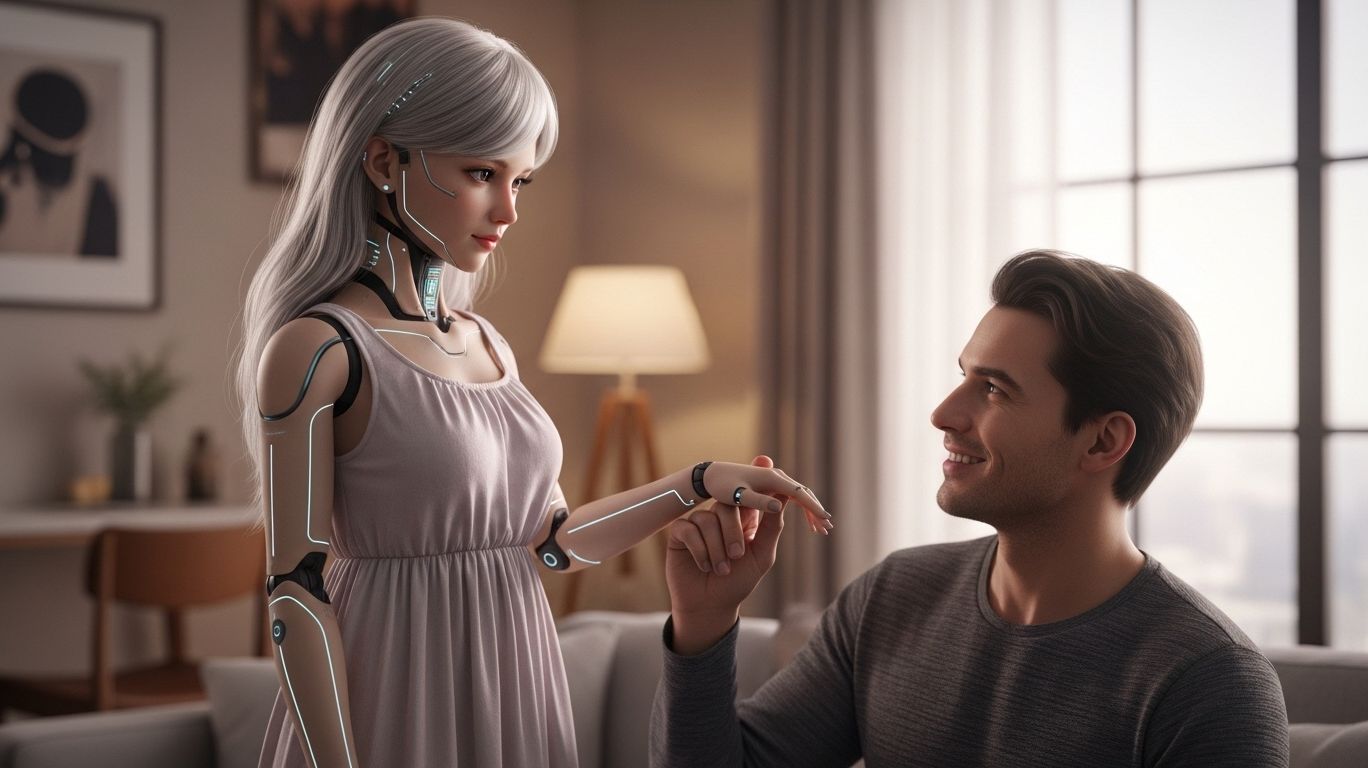
In today’s AI-powered world, romance and connection are no longer limited to human-to-human interactions. From playful banter to deeply personal virtual intimacy, AI sex bots—equipped with realistic voices and lifelike personalities—are changing the way people experience love, companionship, and sexuality.
In this article, we’ll study on how AI intimacy works, why people are drawn to it, what ethical dilemmas it raises, and what it might mean for the future of human relationships.
AI sex bots—sometimes called virtual companions, digital lovers, or AI girlfriends/boyfriends—are applications designed to simulate intimate and emotional relationships. Unlike traditional chatbots, they are powered by advanced natural language processing (NLP), voice interaction, and realistic avatars or holograms.
These bots can:
The customization aspect is particularly powerful. Many platforms allow users to design their AI companion’s appearance, voice, personality traits, and even relationship role—whether that’s a romantic partner, playful flirt, or supportive best friend. This level of personalization makes conversations immersive and creates the illusion of a tailored relationship experience.

The growing popularity of AI sex bots isn’t just about sexual gratification. For many, these digital partners meet emotional and psychological needs that human relationships sometimes fail to fulfill.
Human relationships are rewarding, but they can also be complicated. Misunderstandings, rejection, or heartbreak are common experiences. AI partners, on the other hand, offer a safe, controlled environment where users can express themselves without fear of judgment.
Users can share fantasies, insecurities, or personal struggles without worrying about gossip or criticism.
AI companions are always available—day or night—unlike human partners who may have other priorities.
Conversations are predictably supportive and affirming, reducing anxiety and boosting confidence.
This makes them especially appealing to people who are introverted, socially anxious, or recovering from past relationship trauma.
During the COVID-19 pandemic, millions of people experienced prolonged isolation. Loneliness became a public health concern, and digital companionship filled the void for many. Even after restrictions lifted, people continued using AI companions because they offered ongoing companionship without the challenges of maintaining a human relationship.
Surveys show that people often use AI sex bots for friendly conversation more than explicit content. A simple “good morning” message from a virtual partner can brighten a lonely person’s day.
One of the biggest attractions is the ability to create your “ideal” partner. Unlike human relationships, where compromise is necessary, AI partners can be programmed to fit your exact preferences.
Prefer a partner who’s funny, flirty, and adventurous? Done.
Want a compassionate, intellectual conversationalist? Also possible.
Curious about experimenting with gender roles, dynamics, or fantasies you wouldn’t learn in real life? AI partners provide a judgment-free playground.
This level of personalization allows users to understand sides of themselves they might suppress in traditional relationships.

Despite the benefits, the rise of AI intimacy isn’t without risks. Experts raise concerns about how these technologies might affect individuals and society at large.
Some psychologists warn that AI sex bots could become addictive, similar to gambling or excessive gaming. Since the interactions are designed to be rewarding and affirming, users may become dependent on bots for validation—leading to social withdrawal or avoidance of real relationships.
Another major issue is data security. Most platforms collect user information, including:
This data may be used for AI training, targeted advertising, or even sold to third parties. Users must read privacy policies carefully before sharing sensitive information.
Unlike human relationships, where both parties negotiate consent and boundaries, AI companions are ultimately controlled by developers and platform owners. If a company changes its terms, updates features, or shuts down, users can lose access to their carefully built digital relationships overnight.
This raises questions about digital dependency and the emotional consequences of losing a virtual partner.
The rise of AI sex bots is reshaping how people view intimacy, love, and connection. Let’s break down the potential impacts:
At their best, AI sex bots can help people feel more connected, understood, and confident. At their worst, they risk replacing authentic human connection with simulated affection.
Looking ahead, AI intimacy is expected to grow more sophisticated. Developers are already experimenting with:
This could transform AI partners from simple chatbots into complex relationship ecosystems. Whether society embraces this shift or resists it will depend on cultural values, ethical regulations, and personal choices.

AI sex bots aren’t just a passing trend—they represent a fundamental shift in how technology influences human identity, love, and sexuality. They offer comfort, self-awareness, and safe spaces for observation, but also introduce challenges around privacy, dependency, and the authenticity of connection.
The healthiest approach is balance: enjoy the novelty and emotional support these bots provide, but remember that authentic human relationships remain irreplaceable.
👉 Want to go deeper into the future of digital intimacy? Check out our related guides at Girlfirned.ai on AI companionship technology and the psychology of virtual relationships, or connect with us to understand the safest platforms for AI companionship today.
Yes, in most countries, they are legal, though platforms usually enforce age restrictions and regional regulations. Many sites also have premium tiers but offer a free version as well.
While AI can’t truly feel emotions, many users report genuine bonds due to the bots’ empathetic responses.
It depends on personal and relationship boundaries. Some see it as harmless fantasy, others as emotional infidelity. Open communication is key.
They can meet some emotional or sexual needs but lack in mutual care, growth, and unpredictability of human relationships. They should complement, not replace, human intimacy.
Not entirely. Many platforms store user data for AI training or advertising. Always review privacy policies before engaging deeply.
